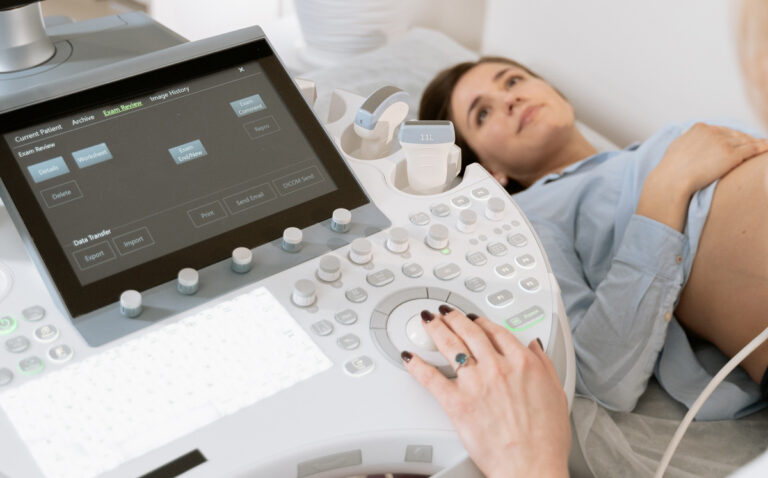The CDC is urging pregnant people to get vaccinated against COVID-19
As the Delta variant surges, the Centers for Disease Control and Prevention is now doubling down on its recommendation for pregnant people to get vaccinated against COVID-19. Citing new data about its safety and effectiveness throughout pregnancy, the updated recommendation outlined how pregnant and recently pregnant people are at an increased risk for severe illness from the virus when compared to others.
The CDC also added how pregnant people with COVID-19 are at increased risk of preterm birth and might be at an increased risk of other adverse pregnancy outcomes, compared to pregnant women without the virus. “Getting a COVID-19 vaccine can protect you from severe illness from COVID-19,” the agency summed up.
The updated recommendation comes after an analysis of new data on 2,500 women. According to the CDC, “scientists did not find an increased risk for miscarriage” among people who received the Pfizer or Moderna vaccine before 20 weeks of pregnancy. The agency also noted how available safety data found no additional risk to people vaccinated later in pregnancy or to their babies. For the Johnson & Johnson (J&J) vaccine, the health agency cited positive safety results from past clinical trials involving the same vaccine technology, as well as studies in pregnant animals, to conclude that the vaccine was safe.
The update also listed studies which found how vaccination of pregnant people can help build antibodies that might protect their baby. “Antibodies made after a pregnant person received an mRNA COVID-19 vaccine were found in umbilical cord blood,” the CDC noted. “This essentially means that vaccinations during pregnancy might help protect babies against COVID-19.” However, the agency also called for the need for more data to determine how these antibodies, similar to those produced with other vaccines, may provide protection to the baby.
The CDC’s advice echoes recent recommendations from top organisations including the American College of Obstetricians and Gynecologists and the American Academy of Pediatrics. According to both groups, data shows that the vaccine is safe and effective when administered during pregnancy and has no impact on fertility. “Pregnant individuals are at increased risk of severe COVID-19 infection, including death,” the organizations said, as noted by The Washington Post. “With cases rising as a result of the Delta variant, the best way for pregnant individuals to protect themselves against the potential harm from COVID-19 infection is to be vaccinated.”
The CDC had previously said that pregnant women were “eligible” for the vaccine. In an interview with The Washington Post, Sascha Ellington, the team lead for the Emergency Preparedness and Response team in CDC’s Division of Reproductive Health, said the agency had no reason for concern, but in the absence of data “did stop short of a stronger recommendation in pregnant women.”
Brenna Hughes, a maternal-fetal medicine physician and member of the Society for Maternal-Fetal Medicine COVID 19 Task Force, also noted that misinformation about the vaccine’s effect on pregnancy and fertility has proliferated. “There’s a lot of misinformation out in the world and that certainly has not helped vaccination efforts in any population,” Hughes said in the interview. “And among pregnant individuals, patients are worried about themselves as well as their babies. They have a lot more to consider.”
As of 31 July 2021, only 23 per cent of those who were pregnant had received at least one dose of vaccine against the coronavirus. With cases of the Delta variant soaring as we speak, the new advice may persuade some pregnant people to immunise themselves against the virus. The latest advice also applies to nursing mothers and those planning to get pregnant.





